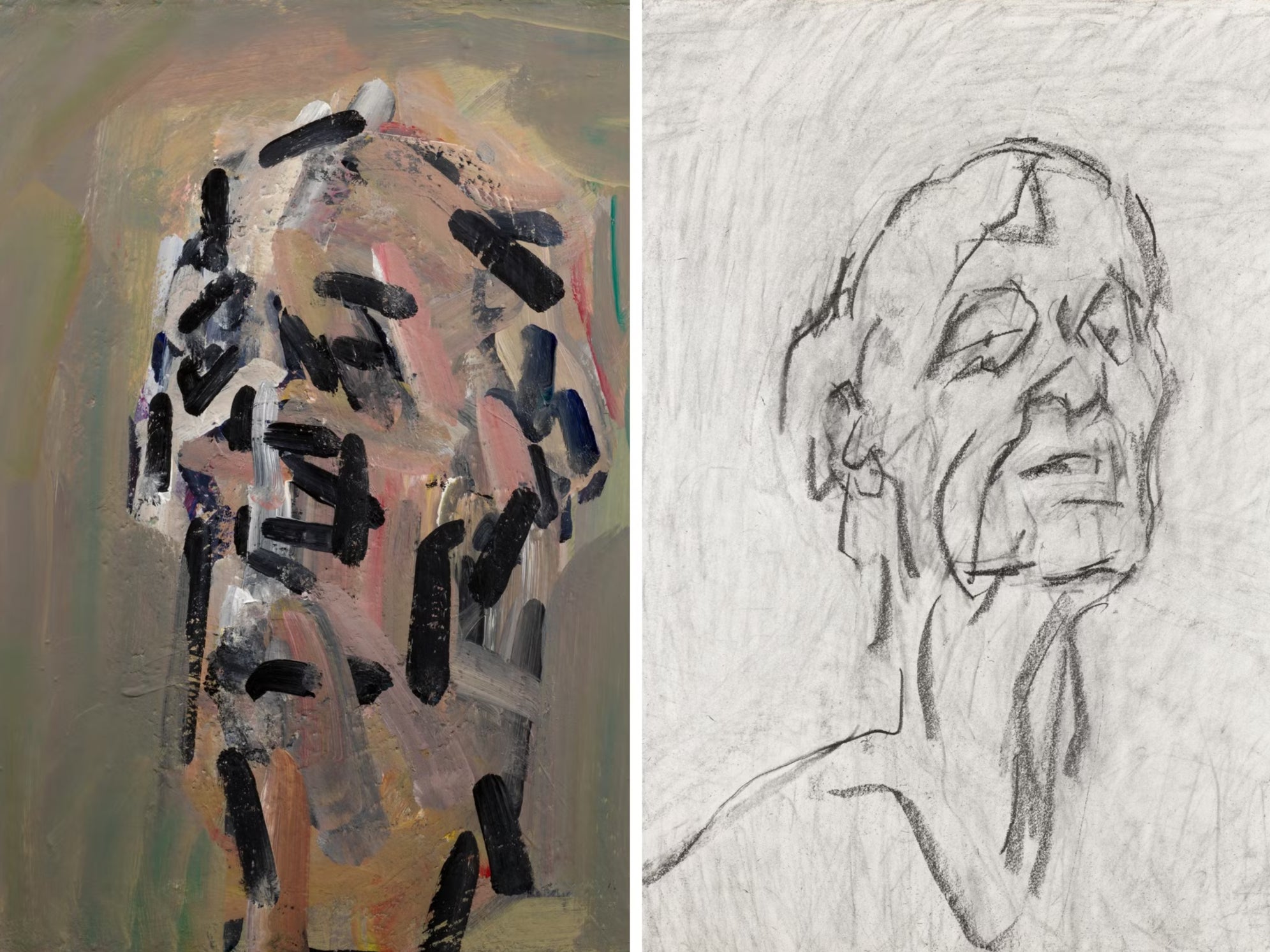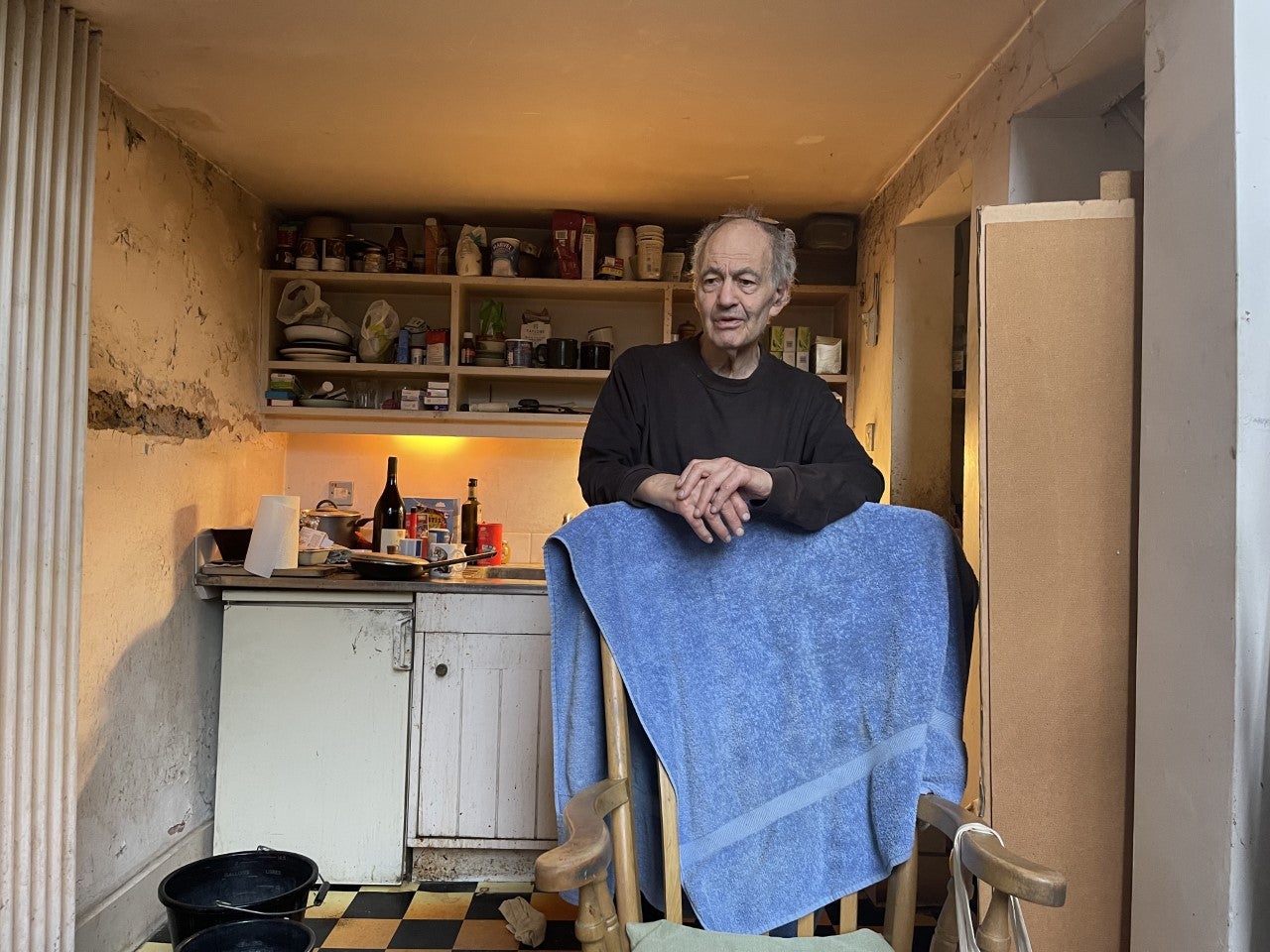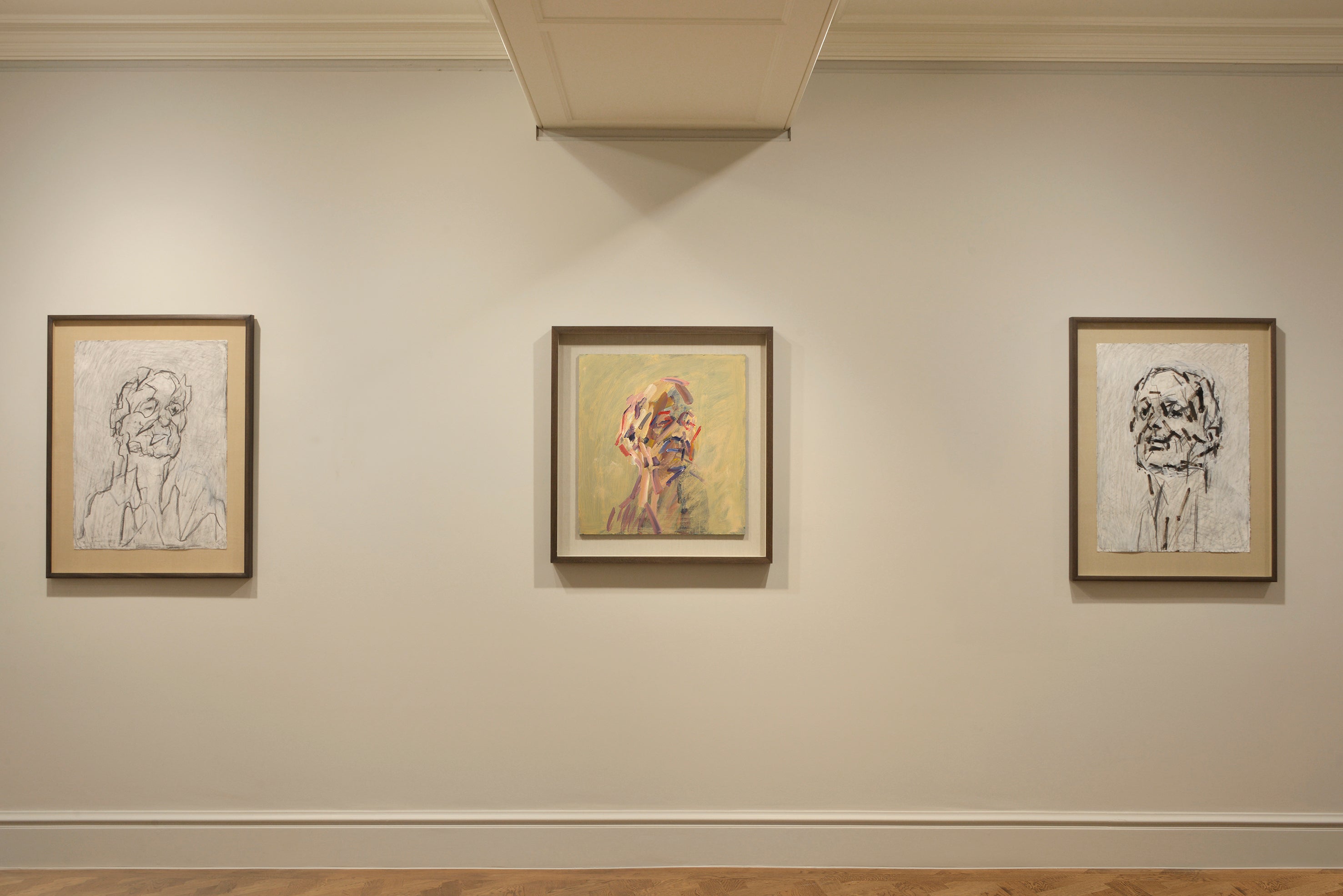Auerbach, grand master of paint, as hot-wired as a live grenade at 92
A mesmerising show of late, great self-portraits proves why Frank Auerbach is one of Britain’s most celebrated painters, writes Geordie Greig


Your support helps us to tell the story
From reproductive rights to climate change to Big Tech, The Independent is on the ground when the story is developing. Whether it's investigating the financials of Elon Musk's pro-Trump PAC or producing our latest documentary, 'The A Word', which shines a light on the American women fighting for reproductive rights, we know how important it is to parse out the facts from the messaging.
At such a critical moment in US history, we need reporters on the ground. Your donation allows us to keep sending journalists to speak to both sides of the story.
The Independent is trusted by Americans across the entire political spectrum. And unlike many other quality news outlets, we choose not to lock Americans out of our reporting and analysis with paywalls. We believe quality journalism should be available to everyone, paid for by those who can afford it.
Your support makes all the difference.There is something miraculous about an exhibition of self-portraits by Frank Auerbach, modestly displayed in two rooms in a side street in Mayfair. Not only is the artist in his early nineties, but he narrowly escaped being killed during the Holocaust: these portraits of the artist as an old man might so easily have never been.
If Auerbach had not been evacuated, aged seven, on a small boat from Germany to England in 1939, he would have been gassed by Hitler, as happened to his parents who stayed behind, and this week there would not be one of the most astonishing exhibitions of self-portraits ever seen in London.
Almost 92, he has seemingly done the impossible: to create portraits in and about old age which are as hot-wired as a live grenade. On display are 20 heads, but each is dramatically different in tone, colour, expression and drama. They range from frenetic, aggressive, pensive, quizzical to anxious. Do not assume vanity or self-regard just because they involve the artist looking at himself. He takes no prisoners, catching every part of his own annoyance or exasperation as well as contemplation.
Auerbach is one of Britain’s most celebrated painters, with works in every major national gallery. He has been a significant member of the post-war artists, including Bacon, Moore and Freud, whose creative originality made the UK a major pulse for art.
He has also, over the decades, invented a language of art that is recognisably his own, stretching beyond any comfort zone, startling himself and, in turn, the viewer. A special structural formality in his portraits exists alongside free-flowing marks arising from intense observation. It draws me to think of late Rembrandt crossed with Giacometti’s delineation and language. A must-see exhibition of nine paintings and 11 drawings, it’s small, intense and, as it is in a commercial gallery, completely free.
The pictures result from a hard, uncompromising quest by Auerbach to take stock of human decline and decay – his own – but with fresh inventive urgency. The physical likeness is secondary to the exploration of space and form in his face – dips, angles, arches, lines and holes, which create an essence and presence of this Holocaust survivor, recluse, polymath, one-time actor, friend of Bacon and Freud, child refugee and above all, fearless portrayer of the human condition.
His paint marks – large and small, forceful smears, like black holes opening up – are torn across, which has been compared to opening up a face to surgery rather than brush marks of someone seeking to find a likeness. The intensity of the process is vivid and the marks can obscure and almost disguise the likeness, while exposing an uncanny sense of the interior of the human head and mind.
“When one is young, one is excited by drama, when one’s old, truth is exciting,” he reveals in the catalogue. His truth is these edgy, sharp, visceral and moving portraits of himself, which sold out in the first hour of the opening last week.

Auerbach is today’s Grand Old Master of British Art, famously spending 365 days a year in the studio searching through paint for hard truths to depict the human form with a contradictory mix of violent intensity in execution, nuanced sensitivity and raw honesty.
To declare an interest, the photograph shown in the catalogue and published here I took of him last year in his studio, almost 40 years after we first met when I interviewed him for a university newspaper. We stayed in touch.
During the pandemic, for the first time in 70 years, Auerbach stopped having sitters: hence using himself. He stayed alone in his brown cave of a studio in Camden, North London, a monk-like paint-flecked cell which he inherited from the painter Leon Kossoff, who had been taught by Walter Sickert and had a nearby studio in Mornington Crescent. The historical link feeds an understanding of him in a long line of British artists.
Starved of sitters (and he only has a rota of five sitters over the past three decades), he turned to self-portraits. In essence, this is the ultimate portrait of the artist as an old man. He had spent most of his life avoiding his own face (two drawings in the 1950s and an oil painting in 1965, and then one in 2021), but necessity and old age altered his aversion. “I didn’t find actual formal components of my head all that interesting when I was younger, smoother and less frazzled. Now that I’ve got bags under my eyes, things are sagging and so on, there’s more material to work with,” he writes.

Old age is not always a time for late great works. Titian’s late style inspired Rembrandt, Rubens and Velázquez. And it’s easy to understand why their powerful expressiveness brought images and ideas such as expressionism and impressionism into art centuries before the words existed to describe them. Titian’s palette with abstract or even impressionist brushwork became extraordinarily expressive and made his works look unfinished.
He was mocked as an old man who made “patchy pictures” – pittura a macchia. Auerbach soars with his new pictures, which are as far from vanity or self-absorption as is possible. They too are late greats.
Frank Auerbach, Twenty Self-Portraits, presented by Frankie Rossi Art Projects in affiliation with Hazlitt Holland-Hibbert is on view until 14 July 2023



Join our commenting forum
Join thought-provoking conversations, follow other Independent readers and see their replies
Comments